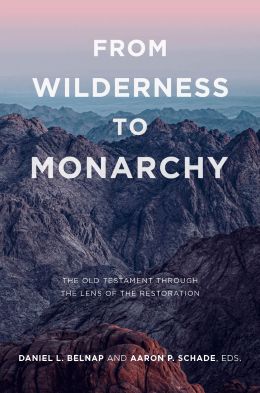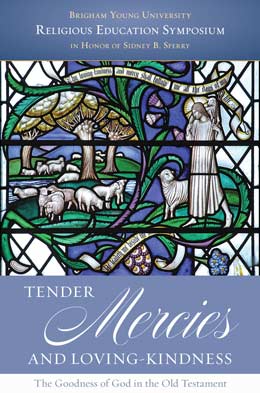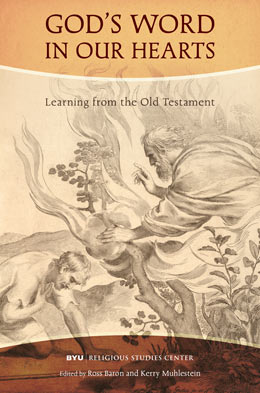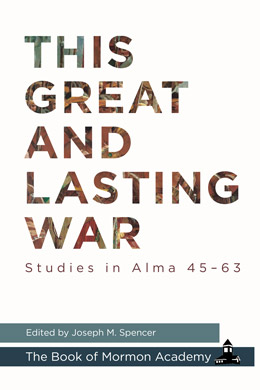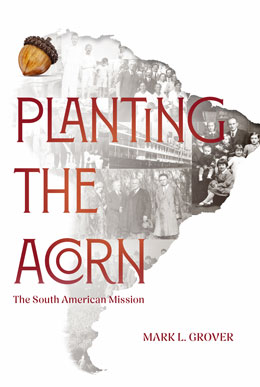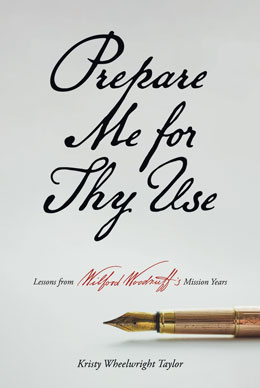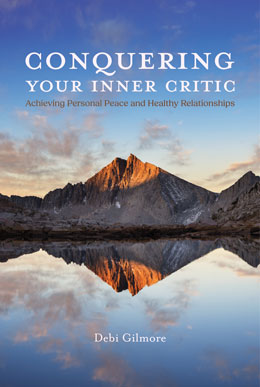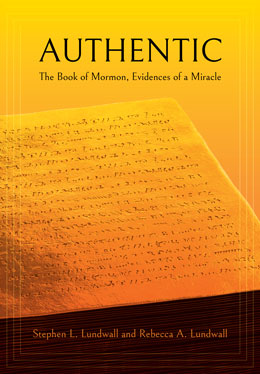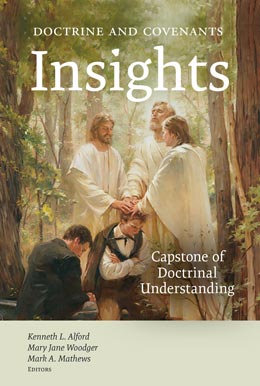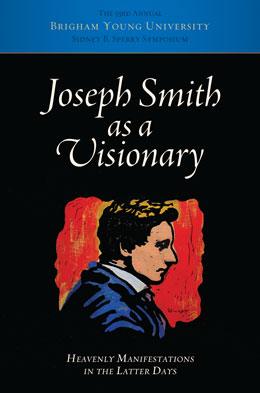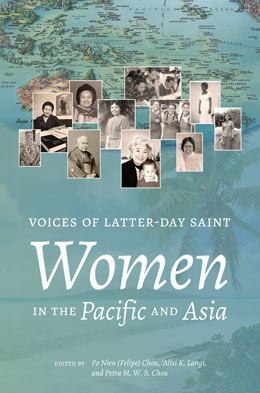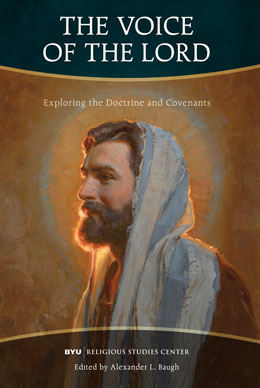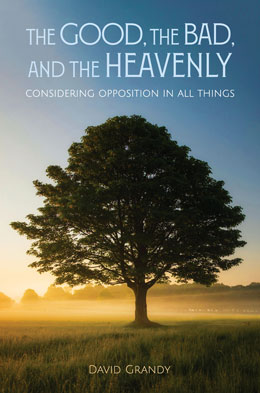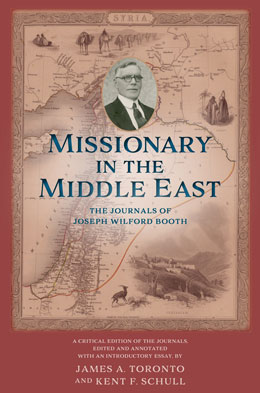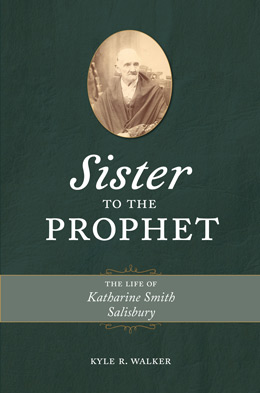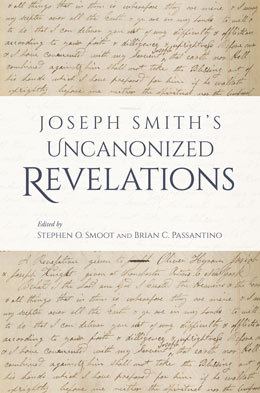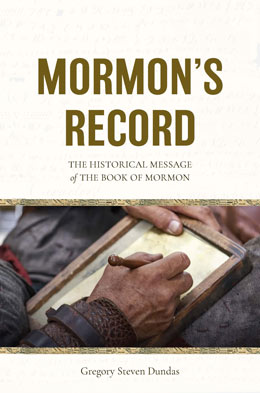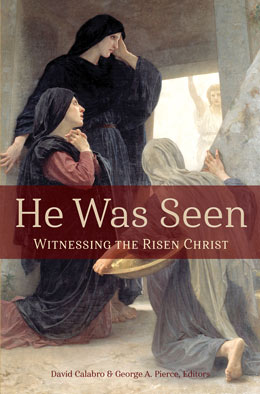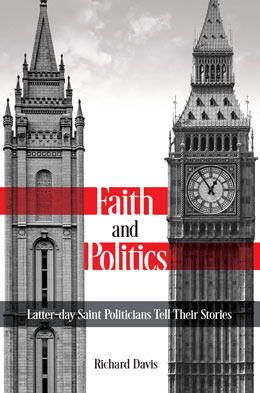Religious Studies Center Books
This book draws on personal writings, archival research, and oral histories to tell the story of the beginnings and expansion of The Church of Jesus Christ of Latter-day Saints in the British Isles through the lens of the places where its members worshipped from 1837 to 1965. Original research has yielded many compelling accounts that together reflect an evocative aspect of the British Saints’ lived history: their places of worship. In the Church’s first century in the British Isles, we see how their religious devotion eclipsed the dismal realities of their often-subpar circumstances and meeting places—from cramped tents and homes to rented rooms and halls and other temporary quarters. The historical tour then settles on the 1960s, an era that saw the inauguration, development, and ultimate closure of the Church Building Programme. This institutional thrust relied on the labour of young Latter-day Saints, many of whom were recent converts who volunteered to leave their homes to construct chapels in various locations throughout the Isles. The blend of meticulous historical research with moving elements of human interest presents a unique perspective on how the Latter-day Saint faith community has grown, expanded, and developed over almost two centuries in the British Isles.
In the early months of 1902, apostle Francis Marion Lyman—then president of the European Mission—embarked on a remarkable journey to the Holy Land and the Ottoman Empire. Joining him were two fellow Latter-day Saint mission presidents: Sylvester Q. Cannon of the Netherlands-Belgium Mission and Albert Herman of the Turkish Mission. It is through the detailed and reflective writings of Sylvester Q. Cannon that this extraordinary pilgrimage comes to life.
Off for the Holy Land presents a richly contextualized and carefully curated account of their three-month expedition. Drawing from Cannon’s vivid personal journals and the nine travelogues he published in the Millennial Star, editor Reid L. Neilson constructs a compelling documentary history that opens a window into early twentieth-century Latter-day Saint missionary work, travel, and interfaith encounters in the Middle East.
The volume is framed by two introductory essays: Reid L. Neilson’s offering historical background on the travelers and the motivations for their tour, and a second—by historian James R. Swensen—featuring a stunning photographic essay. Swensen brings to light Cannon’s personal photo album, pairing rare images with selected excerpts from letters and diaries, offering a visually immersive experience of sacred and storied landscapes.
From the shores of the Mediterranean to the streets of Jerusalem, Off for the Holy Land invites readers to retrace a journey of faith, diplomacy, and devotion—one that deepened these men’s testimonies of Jesus Christ and broadened the Church’s international vision at the dawn of a new century.
From Wilderness to Monarchy offers a Latter-day Saint perspective on Israel’s spiritual and historical journey as recounted in the Old Testament. Beginning with the book of Joshua, it explores Israel’s transition from Moses’s leadership to the hardships and difficulties in the conquest accounts—focusing on covenantal duties, military battles, and moral challenges. The book moves through the era of the Judges, highlighting both general spiritual decline and the faithfulness of individuals like Ruth and Hannah. It then follows the reigns of Saul, David, and Solomon, examining their leadership, flaws, and divine interactions. The volume concludes with insights into the literary, theological, and temple-centered significance of Psalms, Proverbs, and the Song of Solomon. As a companion to From Creation to Sinai, it invites readers to see the Old Testament not merely as history but as a spiritual guide for modern covenant living.
This volume explores the characteristics of God illustrated in his interactions with his people, embodied in his covenants and laws and in the revelation given to his prophets, found in the lives of his servants who emulate these character traits, and expressed particularly in the love and redemption offered to his children here in mortality. The theme is intended to inspire teaching at church and at home by bringing to light the love and compassion of God and uplifting examples of his tender mercies.
This volume contains a faithful new English translation of Genesis, translated directly from the Hebrew Bible into the language of today’s English speakers. The translation is followed by commentary intended to help readers navigate through this first book of the Bible. Joseph Smith’s translation of Genesis is also included, with its additions and revisions placed where they appear in their original context. Genesis is the foundational text for all the sacred writings that follow it. Genesis reveals the creation of the earth and the fall of Adam and Eve, and by doing so it lays the groundwork for later revelations that make known the atonement of Jesus Christ. It is the indispensable scriptural book. For the ancient Israelites and modern believers, it has been particularly important because it tells of the beginnings of human history and relates the story of Israel’s earliest ancestors. This groundbreaking volume brings Genesis to life for a new generation.
This collection of essays is designed to assist teachers and students of the Old Testament in deepening their understanding of this sacred scripture and fostering a closer relationship with God. Recognizing that Old Testament cultures and peoples may be unfamiliar to many readers, the editors have compiled works from Latter-day Saint scholars to enhance comprehension. The essays, written from diverse perspectives, explore the Torah, the Writings, and the Prophets, aiming to nurture God’s word in our hearts and enrich the lives of those we teach.
The latter part of the Book of Mormon’s book of Alma is sometimes referred to as “the war chapters.” However, the relevant chapters are much more complex than often assumed, focusing on the nature of covenant, the love of God, and the way human beings establish their identities. The record alerts readers to challenges uniquely faced by women, the difficulty of handling complicated relationships, and the need to make good choices. The text enlightens its adherents about the meaning of scripture in different contexts, how prophets intervene on behalf of the downtrodden and look to God’s future interventions in the world, and what it means to see God in the concrete details of life.
The Church of Jesus Christ of Latter-day Saints was not established in any part of South America until a hundred years after the restoration of the Church. In 1925 Elders Melvin J. Ballard, Rulon S. Wells, and Rey L. Pratt dedicated South America for the preaching of the gospel and organized the South American Mission. This book examines the beginning of the Church in South America and the different approaches to missionary work during this period. As Elder Ballard accurately predicted, “The work of the Lord will grow slowly for a time here just as an oak grows slowly from an acorn. . . . The South American Mission will be a power in the Church.” South American members now represent over 25 percent of all Church members worldwide.
This book explores key themes in the progression of Wilford Woodruff’s early discipleship during his missionary service in the US and Great Britain. Through his vivid and extensive personal account and within the broader context of Church history, this book highlights his dedication to the principles of hard work, obedience, careful recordkeeping, gratitude, and consecration. These themes provide rich material for personal study; lessons in Church, seminary, or institute; supplemental reading to Come, Follow Me; or mission preparation. Readers will find valuable insights from the story of one man’s life journey that can be applied to their own path of discipleship.
Our inner critical voice can block our ability to recognize and use our unique gifts and talents that are essential in our quest to learn, progress, and become better people despite the challenges of life. Written with members of The Church of Jesus Christ of Latter-day Saints in mind, this book follows proven clinical methodologies and offers helpful faith-based principles and perspectives that also can be effective for anyone struggling with self-defeating tendencies. Readers will explore key steps to identify, reject, and rise above their inner critical voice to discover, cultivate, and preserve their deeper, wiser, and authentic self. The goal is unlocking hope, long-term healing, and personal, social, and spiritual empowerment.
Knowing what to believe and how to determine authenticity is one of the great quests of our age. In this book, Stephen and Rebecca Lundwall suggest that to evaluate the authenticity of the Book of Mormon, readers must analyze its provenance—its journey through time, its ancient custodians and modern witnesses, and the miraculous process of its publication and trajectory into a worldwide, 200-million-book phenomenon despite the historical resistance, prejudice, and violence that have surrounded it. The Book of Mormon is a rare book whose creation and transmission seem designed to withstand the test of time, a remarkable record of ancient provenance made possible only by divine providence.
This book is designed to supplement the 2025 Doctrine and Covenants Come, Follow Me Church curriculum year. The Doctrine and Covenants beautifully illustrates that the Lord Jesus Christ lives and speaks today. By integrating both spiritual and secular understanding and insights, this volume explores how the Doctrine and Covenants teaches doctrine, principles, laws, prophecies, typologies, and gospel applications.
Joseph Smith did not simply proclaim he had a different understanding of Christian religion; central to his teachings were the numerous angelic visitations through which important keys and teachings were delivered. Joseph also had incredible visions of the future, the Resurrection, and the Final Judgment. Some of Joseph’s many visitations and visions would eventually be canonized as Doctrine and Covenants 13, 76, and 137. This book focuses on these miraculous visitations and revelatory visions, their implications for Latter-day Saint doctrine, and their potential application to modern Saints and the broader world.
The history of The Church of the Jesus Christ of Latter-day Saints in the Pacific and Asia includes a vast array of stories and experiences spread across a diverse spectrum of peoples and cultures. However, this history is often focused or told from the perspective or voices of the first missionary elders, branch presidents, bishops, district or stake presidents, and mission and temple presidents. The other half of this important latter-day history includes mothers, wives, daughters, and sisters. The experiences of the first sister missionaries, Relief Society or Primary presidents, companions to the mission presidents, temple matrons, and other female leaders are essential to provide a more complete picture of this great work of faith and sacrifice among the people in the Pacific and Asia.
The essays in this volume explore the historical context and doctrinal teachings from a selection of the canonized revelations and official declarations. Contributors explore the testimony of the witnesses to the Book of Mormon, the revelations given to Emma Smith, Hiram Page, and Thomas B. Marsh; the law of common consent, sacramental covenants, consecration, establishing Zion, the degrees of glory in the afterlife, the priesthood power of women, the visitation of Elijah in the Kirtland Temple, the sacred location of Adam-ondi-Ahman, baptism for the dead, Satan’s reality, the beginnings of plural marriage, the doctrine of redemption of the dead, and the Manifesto, which led to the end of plural marriage.
The Good, the Bad, and the Heavenly is a faith-affirming exploration of Lehi’s teaching that “opposition in all things” structures the world and enables our salvation. A single uniform state can’t compute, can’t deliver the goods of salvation—life, happiness, meaning, intelligence. We need a compound-in-one state in which we are challenged, stretched, and sometimes puzzled. Given its soul-stretching complexity, mortality is not a world in which there is a right answer to every ideological or intellectual question. It is rather a living laboratory for the development of kindness, forgiveness, empathy, and charity. To this end Grandy takes a fresh look at fundamental gospel principles, particularly faith, repentance, and charity—teachings that are admirably adapted to the intrinsically uncertain world we live in. They are the very essence of Christian life.
Joseph Wilford Booth, one of the first Latter-day Saint missionaries in the Ottoman Empire, served for seventeen years between 1898 and 1928 in what is today Turkey, Israel/
Katharine Smith Salisbury was the longest-surviving member of the Joseph Sr. and Lucy Mack Smith family. Her biography records a life of challenges, including overcoming religious prejudice and ostracism. Three of Katharine’s children died in infancy. The Salisburys were driven from Ohio and Missouri. Her husband only sporadically provided for the family, was outside the faith for a time, and died at forty-four. After the deaths of Joseph and Hyrum, Katharine remained in Hancock County, Illinois, where the family continued to experience untold hardships due to her connection to the church’s founder. Through all these challenges, Katharine remained loyal to her brother Joseph Smith Jr., vouching for his prophetic appointment. She successfully perpetuated her faith in these early Restoration events to her expanding posterity before her death in 1900.
This book collects Joseph Smith’s uncanonized revelations, offering a new edition of these texts and update to past work. While most of the texts featured in this volume are accessible in The Joseph Smith Papers, both online and in print, average readers will probably find it difficult to sift through all twenty-seven volumes of the papers to locate these items. This book aims to remove that barrier to help facilitate access to these fascinating revelations.
Although the ancient scriptural record known as the Book of Mormon contains profound doctrinal and theological content, it is foremost a history. Thus, it is not surprising that it has the earmarks of ancient rather than modern works of history. Yet few studies analyze the Book of Mormon as a legitimate work of ancient history. The author describes the sacral worldview that informed much of ancient writing, surveys four millennia of historical writings to show how the sacral worldview differs from modern historiography, and discusses many underlying historical themes found in the writings of Israelite and Greco-Roman historians that also figure in the composition of the Book of Mormon. That scripture’s sobering theological message is shown to emerge from the historical accounts that inform it.
In his letter to the Corinthians, the apostle Paul bore witness of Jesus Christ, giving the saints at Corinth a list of eyewitnesses who had seen and interacted with the risen Savior and repeating the phrase “he was seen.” Those who experienced Christ after his Resurrection include Mary Magdalene, other women, Peter, James, Stephen, Paul, other apostles, and more than five hundred brethren. In the latter days, witnesses of the living Christ continue to bear testimony of him. This volume points to many reasons to fortify our faith in the Son of God, to deepen our discipleship, and to believe in the Lord’s Resurrection and the Restoration of the gospel. These essays encourage all to spiritually see and experience the risen Christ, affirming Paul’s declaration that “he was seen.”
The Church of Jesus Christ of Latter-day Saints has declared the church’s political neutrality while urging individual church members to participate in the political process, become informed about the issues, and choose candidates who demonstrate integrity and compassion. Some wonder if faith and politics can coexist harmoniously. This book features twenty-five interviews with active Latter-day Saint politicians who have served or currently serve in offices at the local, state, and national levels in several countries. They also represent a broad array of political parties and ideologies.


